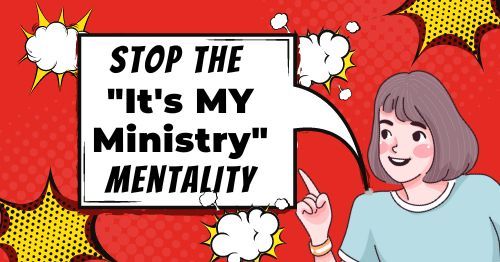
Leader, Do You Have a Book in You?
Back when I was in high school living two miles outside of Washington, D.C., my parents took me to visit The Library of Congress. As I stood eyeing walls of books, millions of them from floor to ceiling, it occurred to me that a whole lot of people publish. And that number has continued to skyrocket. Today the Library of Congress contains more than 74 million manuscripts—about one for every five Americans. So why in the world would you want to add to that stack by writing a book of your own?
Write because you have better data.
Maybe you’ve taken a look at all the books on the market and thought, “Do we really need another work on prayer?” or “Why a new book on relationships?” or “Why would someone want to publish another Bible study on Ephesians?” What I didn’t realize back then but came to see years later is that people will always need more books, new books, even on “old” topics.
When I married, Ed Wheat and Tim LaHaye were the authors most Christ-followers tended to turn to for advice about marital sexual intimacy. And the works by these men helped many at the time. But in the decades since, researchers have given us a lot more information. For example, studies of the female sexual response cycle have shown that choosing to engage intimately is a bigger part of the process for women than for men. So, we need new books with updated information.
Write because diverse perspectives improve our understanding.
I own some great commentaries on Genesis. But most pay little attention to the Tamar story, and even fewer note how her narrative fits into the whole of the book. But Carolyn Custis James has helped me see that this story is not an isolated “bunny trail.” Rather, it’s essential to the storyline of Genesis. The late Tony Maalouf, an Arab scholar looking at Genesis, brought a fascinating perspective on Hagar’s story that revealed God’s beautiful plan for the descendants of Ishmael. One of my former students is an Africa-American who wrote a great devotional combining the Book of Lamentations with the hope expressed in Negro Spirituals. We need more perspectives for a more robust understanding.
Write because some will hear your message only from you.
My mentor at work published a novel set in South Texas. I normally don’t read novels set in Texas. But he wrote it, so I read it. And after I got about one hundred pages in, I realized he had taken a Bible story and retold it in the present with a new setting. Boom! I gained new insight into how the timeless text could apply to my life. Why did I read that book? I could have read Michener’s Texas—or any number of other works in the same genre. But I read it only because I had some connection with the author.
People buy books authored by their favorite TED-talk speakers, podcast hosts, marriage counselors, pastors, radio personalities, and professors. My dad wrote his life story for his kids—a cherished possession for me. Who says everyone who writes a book has to write it for a crowd?
Each author’s unique sphere of influence provides a platform through which some readers are more apt to hear from that author than from any other. Because of this, every year I exhort my grad-level writing students to go ahead and write on topics that interest them, even if the topics have already “been covered.” Several years ago, after hearing this little lecture, one guy showed up the next week with a quote for me that I have since cherished. It’s from St. Augustine’s De Trinitate (On the Trinity), translated by Edmund Hill:
Not everything … that is written by anybody comes into the hands of everybody, and it is possible that some who are in fact capable of understanding even what I write may not come across those more intelligible writings, while they do at least happen upon these of mine. That is why it is useful to have several books by several authors, even on the same subjects, differing in style though not in faith, so that the matter itself may reach as many as possible, some in this way others in that.
I often say ninety percent of writing is having something worth saying. What about your own experience could benefit others? What perspectives do you have because of your sex or ethnicity or education or geographic location that can add value to a conversation? What might you say that can help others feel less alone? What expertise do you have to share that can help others improve? Don’t let the whispering in your head that says someone else has already “done it better” be the voice that stops you from writing. Perhaps that better-written book will never make it into one of your readers’ hands, and you will get to be the fortunate soul through whom someone’s life is forever changed.
Photo by Ricardo Gomez Angel on Unsplash




